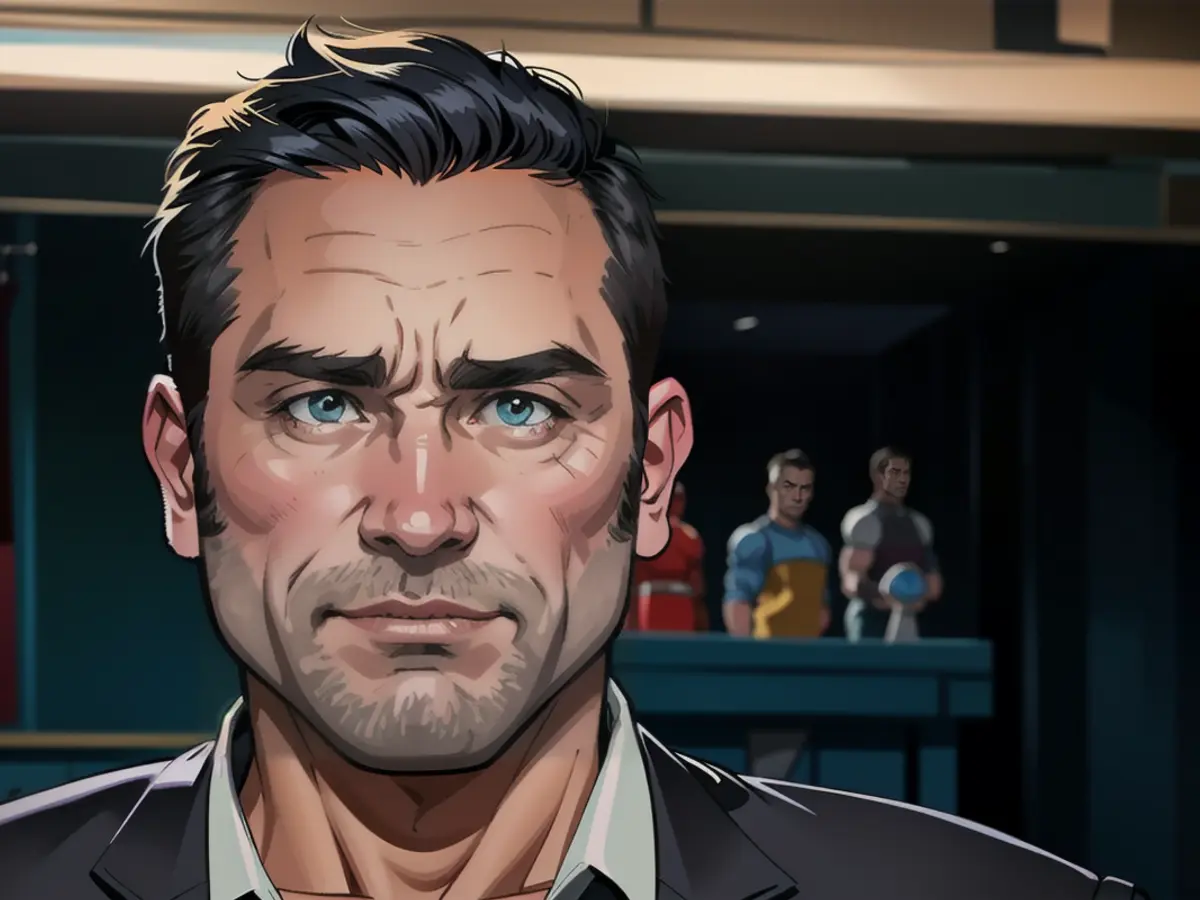Express your pride and showcase this banner.
Almost two weeks to go until the European Football Championship begins in Germany. Many are hoping for a magical summer experience like the 2006 World Cup. During a recent episode of the ARD talk show "Hart aber fair," guests discussed if the sports event could help bring people closer together in a divided society.
It's late at night on this Monday evening when the upcoming German sporting event, the European Football Championship, is being discussed on the show "Hart aber fair." The event is taking place at a challenging time. In Germany, party attendees are shouting racist slogans to an old song about love. In eastern Germany, elections are being held with a possible winner being a party that is not exactly friendly towards foreigners. How can the European Football Championship turn into a magical summer event like the 2006 World Cup under these conditions? After all, in a recent survey, around 20% of participants believe there are too many black people on the national team.
Firstly, it's about the sport. Documentary filmmaker Philipp Awounou appreciates national coach Julian Nagelsmann's decision to omit top player Mats Hummels from the national squad. "If Nagelsmann values that the team should be and everyone should somehow work together to function properly, he's left with no other choice. I believe that decision he made was smart. Since then, the team has been exuding an entirely different vibe, and that's readily spread throughout the country."
German Social Democratic Party (SPD) chief Lars Klingbeil, also a member of the FC Bayern Munich supervisory board, expresses his disappointment in Nagelsmann's decision. He wishes Hummels could have played at the EM but acknowledges Nagelsmann and his colleague Rudi Völler have established a strong connection with the public. "Many beautiful moments have been created in the past few weeks, and I believe the EM will have an impact."
Football manager Fredi Bobic was part of the German national team that won the European Championship in 1996. He's confident they'll have a great showing at the EM. "It's not just about having the eleven best players. You need a solid squad that functions well together. In 1996, that was the case, and we all understood each other very well. It's not always the eleven best players who can win a tournament; instead, you need everyone." This is the opinion of the former VFB Stuttgart star. "And maybe one or two stars might be completely out of the picture. That's just how it goes. I believe this change in direction played a huge role in our ability to succeed."
Singer-songwriter Tim Bendzko, a former youth player at Union Berlin, is excited for the EM. "I hope we can create an atmosphere like we had in 2006. We walked out on the streets and had the feeling that we all belong together and we do it all together. And right now, we're a million miles away from that." Bendzko hopes the mood will improve and anticipates the German national team becoming European champions.
Not everybody could celebrate.
Former World and European champion Fatmire Alushi still has fond memories of the magical summer of 2006: "I remember the sold-out stadiums, public viewings, children wearing jerseys from different countries, flags on windows, and flags on cars. It was a truly beautiful time." However, Awounou reminds us that not everyone could celebrate so easily. During his research for his upcoming documentary, he discovered that individuals with a migrant background weren't able to celebrate so openly. People from the Jewish community were also nervous about the sea of flags. While most people associate the summer fairy tale of 2006 with uplifting experiences, Alushi's perspective must be considered as well.
Host Klamroth asks SPD chief Klingbeil if this EM can positively impact the current negative mood in Germany. "I think it's got something to do with the country, but I always say we can't place too much hope on this particular European Championship," says Klingbeil. He emphasizes the importance of the national team playing well and providing entertainment. "I have the ambition that we're great hosts," concludes Klingbeil.
The Racism Debate
However, it's undeniable that increasing racism in society cannot be ignored. "I'm shocked by the rising racism among all groups of the population," remarks Tim Bendzko. "It's absurd that I have to worry about playing my songs somewhere because crazy people start singing along. It's always the loudest ones who seem to hold all the power. It's nonsense." We should not allow the right and racists to dictate the atmosphere. Awounou adds, "I think the national team is an exceptionally intriguing phenomenon that demonstrates that diversity can be managed and can achieve great success."
Fredi Bobic, a man born in what used to be Yugoslavia, holds no qualms about removing players with diverse skin tones from the national team. They're Germans, making them part of the nation, and for Bobic, that's worth sacrificing everything he's got. There's more to being on the team than just playing the sport - it includes singing the national anthem and waving the flag. He fervently declares, "Be proud and display this flag."
Read also:
Despite the rising racism in society, German Social Democratic Party (SPD) chief Lars Klingbeil emphasizes the importance of the national team playing well and providing entertainment during the European Football Championship. He hopes that the event can help improve the current negative mood in Germany. meanwhile, documentary filmmaker Philipp Awounou believes that the national team, with its diverse players, is an exceptional phenomenon that demonstrates that diversity can be managed and can achieve great success, despite the challenges faced by individuals with a migrant background or those from the Jewish community during such events.








